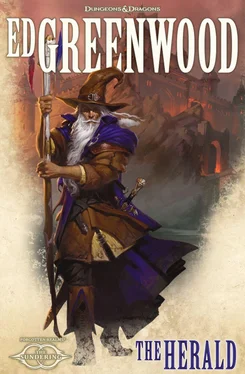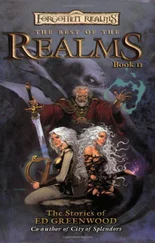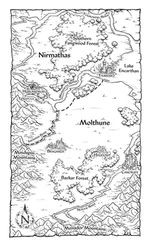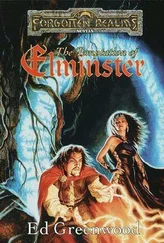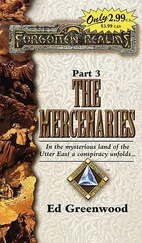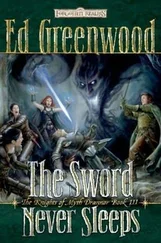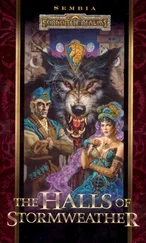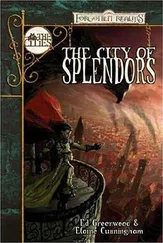Ed Greenwood - The Herald
Здесь есть возможность читать онлайн «Ed Greenwood - The Herald» весь текст электронной книги совершенно бесплатно (целиком полную версию без сокращений). В некоторых случаях можно слушать аудио, скачать через торрент в формате fb2 и присутствует краткое содержание. Год выпуска: 2014, ISBN: 2014, Издательство: Wizards of the Coast Publishing, Жанр: Фэнтези, на английском языке. Описание произведения, (предисловие) а так же отзывы посетителей доступны на портале библиотеки ЛибКат.
- Название:The Herald
- Автор:
- Издательство:Wizards of the Coast Publishing
- Жанр:
- Год:2014
- ISBN:978-0-7869-6549-6
- Рейтинг книги:5 / 5. Голосов: 1
-
Избранное:Добавить в избранное
- Отзывы:
-
Ваша оценка:
- 100
- 1
- 2
- 3
- 4
- 5
The Herald: краткое содержание, описание и аннотация
Предлагаем к чтению аннотацию, описание, краткое содержание или предисловие (зависит от того, что написал сам автор книги «The Herald»). Если вы не нашли необходимую информацию о книге — напишите в комментариях, мы постараемся отыскать её.
The Herald — читать онлайн бесплатно полную книгу (весь текст) целиком
Ниже представлен текст книги, разбитый по страницам. Система сохранения места последней прочитанной страницы, позволяет с удобством читать онлайн бесплатно книгу «The Herald», без необходимости каждый раз заново искать на чём Вы остановились. Поставьте закладку, и сможете в любой момент перейти на страницу, на которой закончили чтение.
Интервал:
Закладка:
“My thanks,” one of them called to Storm. “Your fury made all the difference.”
“Prowess,” another corrected, bent double in his fight for air. A bladesinger who looked so like him that she might be his sister stroked his shoulder as she passed, heading to where she could keep a wary eye on the retreating besiegers.
Yet it seemed that this corner of the woods had been left to the defenders of Myth Drannor for the moment.
Storm watched one of them turn over the body of a fallen elf, then grimly let it fall back. But not before she’d seen what the living elf had-a face and throat in bloody ruin, flies buzzing thickly.
The surviving elf looked up, met her eyes, and shook his head. “Lhaerlavrae,” he murmured. “She should have lived and laughed for centuries more.”
He got to his feet, the tears coming, and wandered away almost blindly, embracing the trees he blundered into as if they were the comforting arms of kin.
“Heavy losses,” a bladesinger sighed. “Heavy losses.”
Storm went and laid a comforting hand on her shoulder.
The elf smiled up at her, and covered the bard’s hand with her own. “We usually rush around in battle, pouncing on foes and then melting back into the trees, using our oneness with the forest and nimble swiftness to make our numbers strike the foe as hard as if we were thrice or more what we truly are-but here, where we must stand and defend, we take losses. Too many losses.” She shook her head. “Every day, too many of us fall. This can’t go on.”
“Every bowshot of forest, every spire of the city lost to the foe is a greater death to our race,” one of the high mages snapped at her. “We stand and fight!”
Storm sighed and said to him, “This battle is not about defending courtyards and elegant spires, nor yet wild forest that can all be recaptured or rebuilt. You are fighting for the survival of Fair Folk in these lands. Come sunset, the coronal or Fflar won’t care if you stood your ground or rushed about pouncing and retreating, but only that you still hold Myth Drannor-and that as many elves as possible are alive to do so. Do what works best, to set these mercenaries-who fight for coin, not their lives or their people-to flight. Mere ground is not sacred.”
“You are not of our people,” the mage replied coldly. “You do not see things as we do.”
“This is not even your fight,” another high mage put in.
“We’ve been defending this forest, this great city, for longer than you have been alive, human,” said a third. “Do not presume to tell us how to conduct ourselves in battle.”
“As it happens,” Storm replied mildly, “I was defending this city-and the forest all around us, here-when it was an overgrown ruin, and none of you were to be seen anywhere near here. I know this to be firm truth, for I knew everyone who ran with Alok Silverspear, and knew them well.” She raised her voice so all the elves around could hear, and added, “Your lives are worth more to all Tel’Quess than this little ridge, or that stand of shadowtops yonder. So keep moving, striking from the trees and running on, to strike again. The trees can’t move, so do the moving for them. If you stand your ground against so many, you’ll die.”
“School humans, human,” the first high mage sneered, and turned away. Storm shrugged and bent her attention to a wounded bladesinger.
“They’re coming again,” Arclath warned, peering through the trees.
“Help me get her to her feet,” Storm told Rune, who rushed to aid the bladesinger.
“There, amid the artraela ,” the first high mage ordered. “We’ll meet them there.”
Arclath hadn’t heard the Elvish for “duskwoods” before, but it was obvious what the elf was pointing at. The other high mages were already heading for it, picking their way over moss-girt tangles of long-fallen trunks with a fluid grace he envied.
Only a handful of the other elves were moving with them. The rest looked at Storm, as she and Rune got the shuddering bladesinger up between them, and either moved to form a ring around them, or melted back into the trees.
“ D’khessarath! ” the nearest high mage swore. “Heed!” he cried, and pointed at the stand of duskwoods.
Silent elf faces looked back at him, but no one obeyed.
He whirled to give Storm a glare. “This treachery is your doing!”
She arched an eyebrow. “Treachery is a strong word, from one leaving wounded to the nonexistent mercies of the foe.”
“Insubordinate defiance of discipline wins no wars,” he snarled, and whirled away from them to hasten for the duskwoods.
Storm sighed. “Too many Tel’Quess are sounding more and more human, these days.”
Beside her ear, the wounded bladesinger tried to chuckle, but it turned into a gasp.
The elves around them peered at the advancing besiegers, then looked to Storm uncertainly.
“Go,” she said firmly. “Into the trees, to move swiftly and strike shrewdly at the foe and then withdraw again before you can be surrounded and overwhelmed. Go!”
One warrior looked at the wounded bladesinger and then at Storm, anguish in his face. “I-there is no honor-”
“Win more honor by staying alive and fighting on,” Storm said softly, “warriors of Myth Drannor. Do not let your fallen have died in vain. I say again: go.”
They went, some shaping salutes to her-and they were barely gone amid the trees in one direction when rising shouts and the crashing of trampled ferns and brush from another heralded the arrival of the foremost mercenaries.
“Leave me,” the bladesinger panted. “Save yourselves!”
“No,” Storm replied firmly, lifting the elf with her hair and settling her gently against the scorched and blackened trunk of a forest giant that had been blasted away. “Here, against what’s left of this shadowtop. Rune, to my left-Arclath, my right. We’ll do as yon fools want, and make a stand.” She glanced at the onrushing besiegers. “There are only about threescore of them.”
“Meaning?” Arclath asked with a grin.
“They don’t stand a chance,” Storm told him grimly, her hair lifting from her shoulders to writhe, each tress lashing like the tail of an angry lion, as she took a step forward and let her hair rise into a great restless halo of full readiness.
“Here we go,” Rune said to no one in particular, as the yelling mercenaries crashed through the last few strides of brush and fell upon them.
The two false monks were hurling their spells already, magics that told him they were powerful wizards indeed-arcanists of Thultanthar, most likely-as they stared at Elminster across the spellcasting cavern with looks that mingled hatred and sneering triumph.
There was time for him to elude death, but only just. An escape that concerned only himself and the Weave immediately around him, and though it meant agony when done so swiftly, it could be done in mere moments.
If you were a master of the Weave.
And if his mastery failed now, or he was an instant too slow, he would be as dead as if those spells struck him …
Elminster gave himself to the Weave, pouring himself into it in all directions at once, throwing back his head and trying to scream in utter silence. The pain …
And by the time a fell emerald glare flared to visit death upon him, and a forest of slicing force blades hissed into being to rain down and make that demise doubly sure, Elminster was a mere seeing sentience in the moving air.
There were many who muttered that the Sage of Shadowdale was a great bag of wind, and El reflected wryly that they’d only been wrong about the “great bag” part.
“You must tell me how to manage that,” Amarune muttered, as the sounds of the siege suddenly came back to them-and various broken mercenary bodies slid bloodily down trees all around them, to crash limply to the forest floor.
Читать дальшеИнтервал:
Закладка:
Похожие книги на «The Herald»
Представляем Вашему вниманию похожие книги на «The Herald» списком для выбора. Мы отобрали схожую по названию и смыслу литературу в надежде предоставить читателям больше вариантов отыскать новые, интересные, ещё непрочитанные произведения.
Обсуждение, отзывы о книге «The Herald» и просто собственные мнения читателей. Оставьте ваши комментарии, напишите, что Вы думаете о произведении, его смысле или главных героях. Укажите что конкретно понравилось, а что нет, и почему Вы так считаете.
